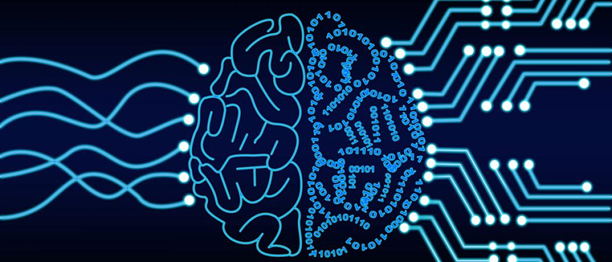Every competent doctor knows that in order to treat a disease or malady, there has to be an accurate diagnosis. However ‘thought leaders’ aren’t even beginning to give an accurate diagnosis, much less effective prescription for the human crisis.
All conscious people are aware of the growing human crisis, manifesting as the climate catastrophe and the Covid calamity, among numerous other global challenges.
But technology, the Internet and/or institutions — not humans ourselves — are seen as the problem. So one reads silly questions such as, “What if humanity’s capacity to cooperate has been undone by the very technology we thought would bring us all together?”
Such questions flow from the false premise that “at the broadest level, human history is a story about cooperation.” In this worldview, our purported gift of cooperation has allegedly led humankind to go “from the family to the village to the city, nation-state and global mega-corporation.”
As if that’s progress. The increasing complexity and population of the world doesn’t attest to anything except an increasing sophistication of technology, allowing a growing number of humans to overrun the earth’s carrying capacity in our discordant relationship with the earth.

As a species we humans have always been divided among ourselves as groups, and alienated from nature as a species. Tribalism is not just an atavistic orientation wrought by 21st century politics and the Internet, but a defining characteristic of human nature.
Therefore it’s absurd to ask, “What if we’ve hit the limit of our capacity to get along?” Our vaunted cooperation has been based on tribalistic/nationalistic identification where groups are concerned, and the greed/profit motive where economics is concerned. The earth is defining the limits of such so-called human cooperation, as the Sixth Extinction and the intensifying climate crisis attest.
What about pre-history? Didn’t humans live in harmony with the earth before the Agricultural Revolution? Due to primitive technology, a relatively harmonious relationship between humans and nature existed in indigenous times. The daily struggle of prehistoric peoples to survive, and the brevity of the human lifespan belie the fashion of romanticizing “indigenous wisdom” in prehistoric times.
Besides, even prehistoric human hunters, using only spears and atlatls, were able to drive the megafauna of North America to extinction. And despite the present fad of idealizing Neanderthals and other human species that briefly co-existed with ‘fully modern humans,’ they were all driven to extinction as well, whether through conflict or out-competing them for the same resources.
What little intermingling between Homo sapiens sapiens and Homo sapiens neanderthalensis that did occur does not deny the fact that the last holdouts of Neanderthals died out in caves around Gibraltar on the Iberian Peninsula.
So it’s ridiculous to blame technology, including the Internet, for man’s “sour and fragmented global polity.” Blaming the Internet is like blaming the printing press when it was invented.
The caveat that “the internet didn’t start the fire” but has greatly fostered it, and “undermined our greatest trick, doing good things together,” is a woefully superficial diagnosis of the human crisis. The malady, and the right diagnosis, is much deeper and older.
Nearly everyone who uses the term ‘human nature’ sees humans as unchangeable as the orbit of the moon around the earth. But the moon’s orbit is slowly drifting away from the earth, and human nature is rapidly making this beautiful planet uninhabitable.
It’s true that psychologically, at our core, people have remained basically unchanged since fully modern humans emerged about 100,000 years ago with the Cognitive Revolution. The basic psychological sameness over eons is what most people mean, whether they realize it or not, when they glibly refer to human nature.
The Cognitive Revolution was an exaptation of a pre-existing but latent neural capacity in early Homo sapiens that spread very quickly though our species. That’s because though it was a transmutation, it was culturally released.
If we were able to bring a baby from Africa, Europe or Asia a few hundred years after the Cognitive Revolution occurred into the present, that baby would be capable of what any average baby is today. But if we were to go back even a few hundred years before the Cognitive Revolution occurred, the human baby would not have the intellectual capacity of an average child born anywhere in the world today.

If we are to survive and thrive as a species now, rather than as a prematurely identified intelligent species, human nature has to change. That requires a conscious transmutation, beginning in the individual and small groups of people.
This will give rise, in our age, or in some future age if Homo sapiens survives, to an Insight Revolution. And that means that Homo sapiens sapiens (a doubly ironic nomenclature, since ‘sapiens’ means ‘wise’) will make the leap from living in terms of separation and alienation, thought and time, to a foundation of stillness, being, wholeness and timelessness.
The self is separation; and separation, not cooperation, is the core psychological trait of humans as we have been for tens of thousands of years.
The fragmentation of the human adaptive pattern of separativeness, mistakenly carried over to the psychological dimension since the beginning of man, has driven the earth to the limit of ecological viability. Consequently we are now facing, in the present age, the limits of man’s separativeness and self-centeredness.
The psychological, emotional and spiritual challenge in the present age is greater than humans have ever faced. The jury is still out on whether enough of us are up to it.
Martin LeFevre

